Review of Wim Wenders Collection (10 Disc Box Set)
Introduction
Ernst Wilhelm Wenders, more commonly known as `Wim`, studied medicine and philosophy before changing direction and becoming part of the German New Wave of cinema, along with such directors as R. W. Fassbinder and Werner Herzog. This box set contains ten of his films, some previously unreleased.
Five of the set are reviewed here: The Wrong Move (1975); Lightning Over Water (1980); Room 666 (1982); Paris, Texas (1984) and Wings of Desire (1987).
The Wrong Move (1975)
The second film of Wenders` road movie trilogy is based on Goethe`s novel `Wilhelm Meister` and adapted for the screen by Peter Handke. An aspiring writer is sent to Bonn by his mother in the hope that he will gather inspiration for the book that he just can`t write, become successful and then leave home. During his six day journey, he is joined by a man who competed in the 1936 Olympics, a mute gymnast, a terrible poet, a `resting` actress and a failed suicide. This film marked Nastassja Kinski`s film debut, as a 13 year old under the name Nastassja Nakszynski - she would later reunite with Wenders in `Paris, Texas` almost a decade later.
Without having seen `Alice in the Cities` or `Kings of the Road`, the first and last instalments, it`s impossible to say how this fits into the trilogy and whether it`s representative of that part of Wenders` career. However, I got the feeling that Wenders identified with Wilhelm and made `The Wrong Move` semi-autobiographical. The revelation that Laertes (Hans Christian Blech) competed in the 1936 Olympics leads to a discussion about his loyalty to Hitler and whether he would have shaken Jessie Owens` hand - clearly the wounds of the Nazi regime had not completely healed. His other companions allow Wilhelm to meet and interact with sections of society that he had been previously sheltered from. Peter Handke`s screenplay is very well written, making the subject matter interesting to a Briton some three decades later, but I don`t know how it was received in Germany at the time.
Some parts of the film struck me as indulgent, whereas others are beautifully filmed and obviously part of something bigger - it`s a mystery why the other two films aren`t included in this set.
Lightning Over Water (1980)
This strange semi-documentary is extremely difficult to watch as you know that you are watching someone die. Wenders travelled to New York to catch up with director Nicholas Ray, most famous for making `Rebel Without a Cause`, who was dying of cancer. Ray is trying to complete his final film and Wenders wishes to work with him and document this process.
Although moving and fascinating, this is a strange and uncomfortable film to watch, as you are aware that a man`s final days are the subject of a documentary and he is sharing his apartment with a film crew. Despite my interest in the film, I was left with the feeling that it should maybe have been kept as a private film for friends and family of both men.
Room 666 (1982)
During the Cannes Film Festival of 1982 Wenders persuaded a number of film directors, including such luminaries as Jean-Luc Godard, Steven Spielberg, Werner Herzog, Michelangelo Antonioni and Rainer Werner Fassbinder to lock themselves in room 666 of the Hotel Martinez, attach a microphone to themselves, switch on the fixed camera and answer the question "Cinema: is it a language about to get lost, an art about to die?".
Given the rather philosophical nature of the question, and, Speilberg aside, the non-mainstream nature of the participants, the answers are fairly high-brow and dry, making this of interest to those in the business or serious cinephiles. The answers provide a snapshot of cinema in 1982, with people talking about VHS as a threat to cinema attendance; the extent to which cinema has moved on in the 25 years since, is incredible, with DVD replacing VHS and HD-DVD and Blu-Ray looking to replace DVD, CGI reaching a level unimaginable in 1982 and home cinemas giving people less reason to travel to a cinema. Godard`s contribution is perhaps the most prophetic, arguing that fewer and fewer films are being made and that the same storylines are being re-hashed - if one looks at the recent `animated animal` films like `Over the Hedge`, `The Wild`, `Madagascar` and `Open Season`, you can see his point.
Paris, Texas (1984)
Opening with expansive shots of Texas` Big Bend National Park, reminiscent of John Ford`s use of Monument Valley, `Paris, Texas` begins with an unidentified man (Harry Dean Stanton) dressed in a suit and red baseball cap, who finishes off a container of water and starts to walk across the desert. After collapsing in a bar, he is seen to by a German doctor, who takes the only piece of identification from his wallet and phones the man`s brother, Walt (Dean Stockwell). It transpires that Travis has been missing for four years and has amnesia. Together with Walt and his wife, Travis begins to rekindle his relationship with his young son and rebuild his life with the aim of finding his estranged wife (Nastassja Kinski).
From the opening shots of Big Bend National Park, it is clear that Wenders has set out to make a film epic in scale, yet when the characters are introduced, the focus is intimate. Harry Dean Stanton, for one of the few times in his career, gets top billing and puts in a performance repaying the faith that Wenders had in him. Stanton`s relationship with Hunter Henderson, who plays his son, is key to the film`s success and the final scenes with Kinski are incredibly moving and beautifully filmed and performed. Arguably Wenders` greatest American movie and one of the finest films of the 1980s.
Wings of Desire (1987)
After a decade of making films in the US, Wim Wenders returned to Germany to make a film, although he had no script, no funding, no cast and no idea of what the film would be about. He got the rather simple idea of angels in Berlin whilst walking around the city and noticing the number of statues of angels. The plot is hardly complex: the world is full of guardian angels and `Wings of Desire` follows two of them, Damiel (Bruno Ganz) and Cassiel (Otto Sander), who walk the city, invisible to those around them, listening to people`s thoughts and provide comfort to those in need. Damiel falls in love with a trapeze artist (Solveig Dommartin) and, after `meeting` Peter Falk, decides to become human.
I don`t know whether Wenders set out to do so, but `Wings of Desire` examines the duality of existence, from the city cut in two by the Berlin wall to the existential dilemma of Damiel. The dialogue is secondary to the splendid camerawork and cinematography by 76 year old Henri Alekan. The angels exist in a black and white world, with colour only appearing when they are absent. This is probably Wenders` finest film, remade in 1998 as `City of Angels`, and is a visually stunning and beautiful film.

Video
The Wrong Move: Presented in anamorphic 1.78:1, the film looks slightly dated with a muted colour palette, but there are few, if any, artefacts to distract from Robby Müller`s fine cinematography.
Lightning Over Water: Again, this has an anamorphic 1.78:1 transfer and the quality of the picture differs as the film switches between film and video cameras.
Room 666: recorded on a `locked` camera, this is presented in 1.33:1 and has no visual detritus, but then the visuals aren`t supposed to be important.
Paris, Texas: the anamorphic 1.78:1 transfer is excellent, with sharp colours and deep contrast. Robby Müller`s cinematography is superb and shows why Wenders has worked with him on 13 films over the last 30 years.
Wings Of Desire: the anamorphic 1.78:1 transfer does not disappoint in any way and showcases the amazing visuals.
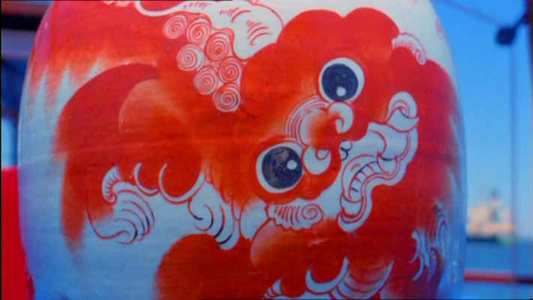
Audio
Each film has both Dolby Digital 5.1 and Stereo soundtracks. The 5.1 is used more, and to good effect in `Wings of Desire` and `Paris, Texas` than in the other more front-loaded films, which didn`t need the 5.1 mix. The sound in `Room 666` was recorded entirely onto tape via a tie-clip microphone, so the 5.1 is redundant, but at least they didn`t make the mistake others have and run the same sound through all five surround channels.
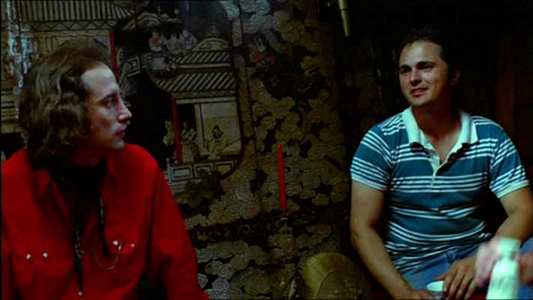
Features
The only films that have supplementary materials are `Wings Of Desire` and `Paris, Texas`. Aside from the features listed below, both have a commentary by Wim Wenders which are well delivered and interesting, revealing much about the film. On `Wings of Desire`, he is joined by Peter Falk, who adds to an already fine commentary.
Wings Of Desire:
Deleted Scenes and Outtakes - running at 30 minutes, with commentary by Wenders, this is comprised of footage that he shot (including a pie fight!), but wisely left out of the finished film.
There is also a German theatrical trailer, a trailer with actor Curt Bois for a Wenders retrospective, a photo gallery, comprehensive film notes and cast and crew biographies.
Paris, Texas:
Twenty-two minutes of deleted scenes, commentated by Wenders. The footage is largely of `rushes` quality but is still worth watching, if only for Wenders` audio contribution.
`Film Festival in Cannes` - lasting just over three minutes, this is merely footage of Wenders and the cast being photographed as they walk to the screening at Cannes.
The outtakes featurette comprises surplus footage of the home movie, with the dialogue of Travis`s first meeting with his wife as voice-over.
The profiles of Nastassja Kinski, Wim Wenders and Harry Dean Stanton are thorough and well written - mini-biographies, in effect.
There is also a trailer and photo gallery.
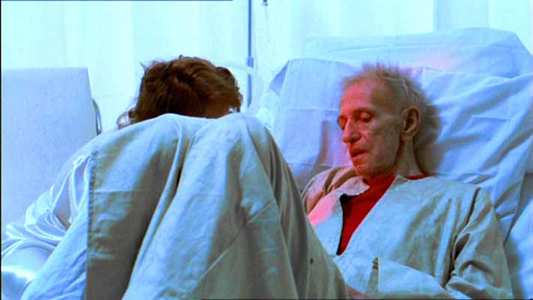
Conclusion
One of Germany`s leading directors and an important figure in German cinema, Wim Wenders has made a variety of different films, reflected in the contents of this box set. Together with `Buena Vista Social Club`, `Paris, Texas` and `Wings of Desire` are almost unquestionably Wenders` best and most well known films. The two of those included here are clearly works of a great director, but the others are less accessible and enjoyable.
In respect of his accessibility, Wenders is similar to David Lynch: they both produce films that satisfy and are loved by their fans, but can leave the casual filmgoer cold. As Lynch did with `The Straight Story` and Wenders with `Paris, Texas`, they can make a film that bucks the trend and will appeal to a wider audience. Although superior in just about every respect to it`s remake, `Wings of Desire` is unlikely to please the average visitor to Blockbuster, who would undoubtedly find `City of Angels` a more approachable film and a more enjoyable viewing experience.
There is no question that `Paris, Texas` and `Wings of Desire` are the main selling points of this set and the two films with the broadest appeal. However, this set is clearly designed for fans of Wim Wenders who have been waiting for all these films to be available on DVD as `Lightning Over Water` and `The Wrong Move` are aimed at a niche market.
If you`re a fan of Wim Wenders then this is the set that you`ve probably been waiting years for; on the other hand, if you enjoyed `Paris, Texas` and expect more of the same, you won`t get it here.
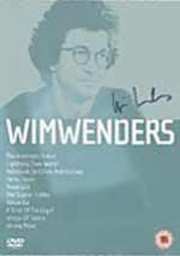







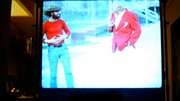




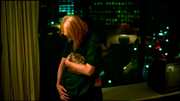
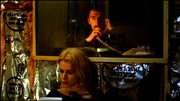


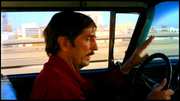



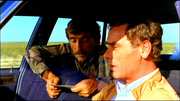
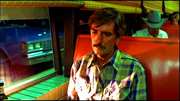



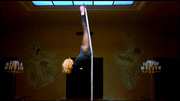

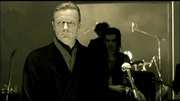
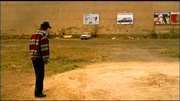
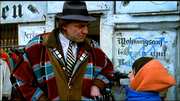
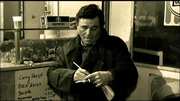
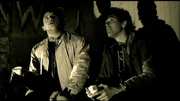
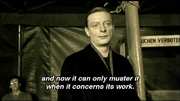
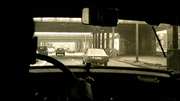
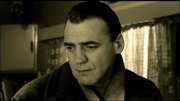
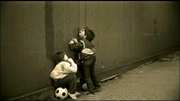
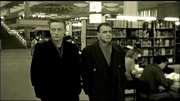
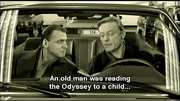
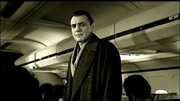
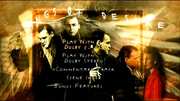

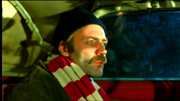
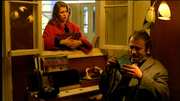
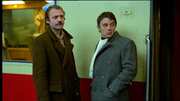

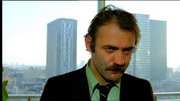
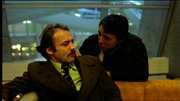
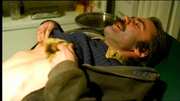
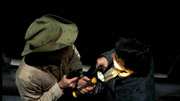

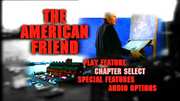
































Your Opinions and Comments
Be the first to post a comment!